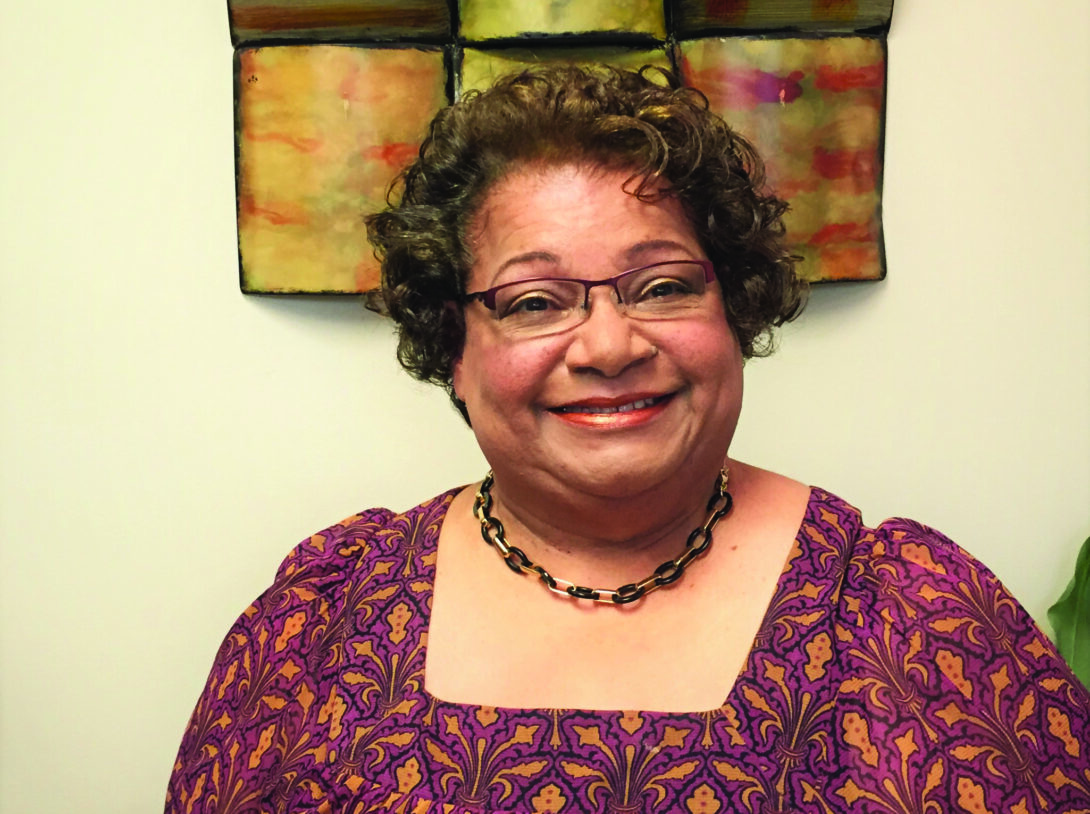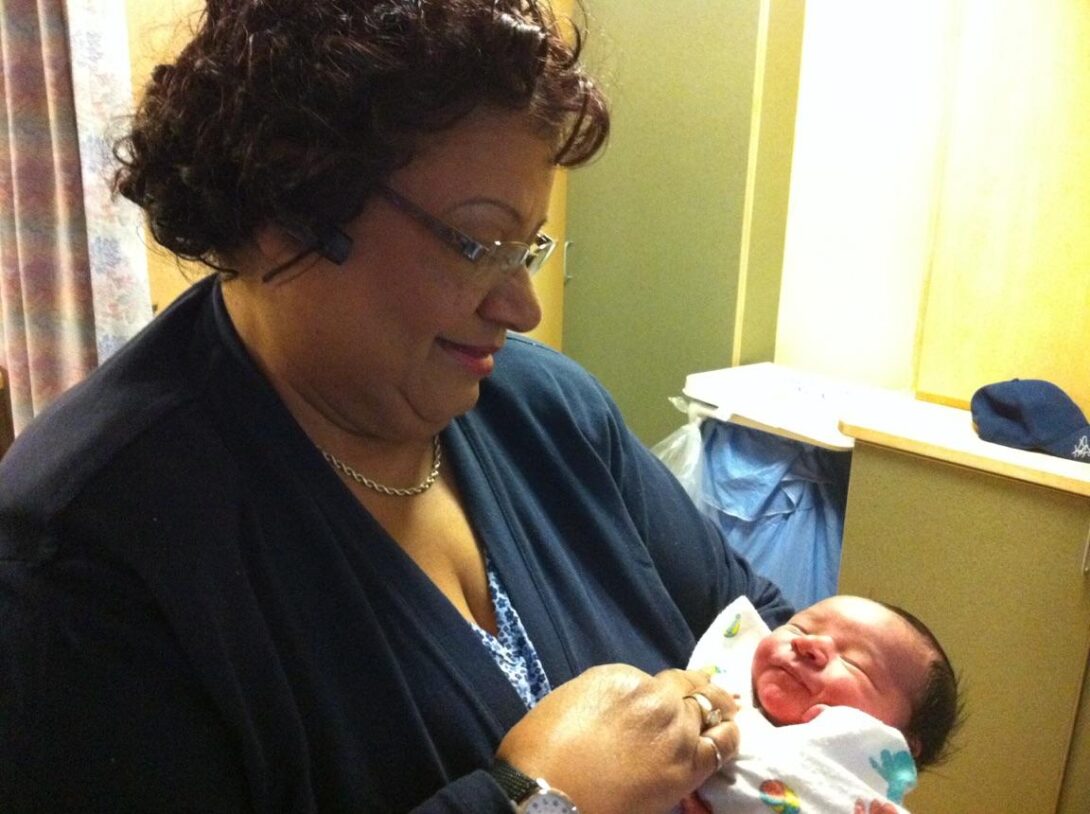Alum mines experiences to create midwifery scholarship
Body Heading link

Victoria Venable Fletcher, MS ’78, RN, CNM, FACNM, says it is in her “DNA to be an advocate and disruptor.”
She remembers being the only African American student in her Master of Science in nurse-midwifery program at the UIC College of Nursing in the mid-1970s. As a pioneering student in the young program – which was only four years old at the time she enrolled – she recalls facing implicit and explicit bias from faculty and staff, but also benefited from the encouragement of mentors and champions who wanted her to succeed.
“That’s why I know it’s important to have someone that demonstrates an interest and shows that they care – that they’re invested in your success,” she says.
Her experiences and “a desire to change the narrative” prompted Fletcher to make a gift to the UIC College of Nursing to create a scholarship for underrepresented students in the nurse-midwifery and nurse-midwifery/women’s health nurse practitioner programs.
“What the scholarship will do is allow us to say to students: ‘Yes, we believe in you. We want you to succeed. We do not want financial barriers to hold you back,’” Fletcher says. “I want to be there to offer a hand and help uplift these students.”
In her DNA Heading link

Growing up in Detroit in the late 1950s and early 1960s, Fletcher says she was motivated to become a nurse and nurse-midwife after making visits with her mother to friends and family in segregated hospitals.
“Some people were patients in what were thought of as the ‘Black hospital,’” she says. “It bothered me that there were separate hospitals for Black and white patients. More often than not, the ‘Black hospitals’ were woefully under-resourced compared to their ‘white’ counterparts and resulted in two standards of care. The differences were apparent even from my child’s perspective.”
Fletcher was also inspired to go into a health-related field by her uncle, Howard Phillip Venable, MD, a renowned ophthalmologist and civil rights advocate who championed equitable care for all patients and mentored dozens of Black physicians at Homer G. Phillips Hospital and Washington University School of Medicine in St. Louis.
Despite his success, Venable faced fierce discrimination. In the 1950s, he lost a hard-fought battle against the city of Creve Coeur, Missouri, which used eminent domain to take his home and prevented him from residing in the all-white enclave. As would later be true of his niece, Venable used his experience with adversity to support others: He established a research fund for underrepresented ophthalmology residents at Washington University School of Medicine.
“The combination of my lived experiences and those of my uncle inspired me to become a health care professional, to help ensure that all patients would have access to quality healthcare, and not be limited in their options or care based on race or ethnicity or socioeconomic status,” she says.
Fletcher’s wide-ranging career reflects this commitment, bringing her from California to South Carolina to Washington state. She has worked as a nurse-midwife in the National Health Service Corps on the Sea Islands off the coast of Charleston, South Carolina, as well as in a county health department, a Federally Qualified Health Center (FQHC) and a naval hospital.
She spent time in academia at the University of San Diego and the Medical University of South Carolina and is past chair of the Washington State Board of Nursing. Her tenure of more than 20 years with Planned Parenthood includes first working as a clinician, then director of health services at her local affiliate, followed by positions of director of accreditation and consultant for accreditation for Planned Parenthood Federation of America.
Moving the dial Heading link
Health disparities that Fletcher witnessed as a child still exist in communities of color. Black maternal mortality is three times the rate for whites, and about two-thirds of these deaths are preventable, according to the CDC. Studies have shown that models of care that have racial concordance between provider and patient have better outcomes.
“It’s another compelling reason to increase the racial diversity of the nursing and midwifery workforces,” Fletcher says.
Since the time Fletcher was a student, a number of scholarship funds have been established at UIC Nursing to enhance diversity, including the UIH Midwifery Practice Diversity & Inclusion Scholarship . But the profession still does not reflect the country’s demographics. The majority of certified nurse midwives and certified midwives identify as white – about 85%. About 7% identify as Black or African American, according to the American Midwifery Certification Board 2021 demographics report.
“I wanted to make my gift to an educational institution that is diligently trying to increase the diversity of the nursing and nurse midwifery student body and to help them be successful in completing the program,” Fletcher says. “There are a lot of institutions that give increasing racial and ethnic diversity lip service, but really do not move the dial. [Once I saw] statistics that demonstrated the changing demographics and increased diversity of nursing and midwifery students, I felt UIC was the right place for my gift.”
Fletcher says she also wanted to make sure students could reapply for the scholarship in subsequent years if appropriate.
“The scholarship is not just for tuition and books,” she says. “Students can use it to access things that aid in their success, things like childcare or transportation.”
Fletcher, now retired from clinical practice, still has her finger on the pulse of nursing workforce issues through her involvement in regional and national health and nursing organizations, boards, and committees. She says she is putting her “time, effort and money” into issues that she is passionate about, including diversification of the nursing workforce and supporting the next generation of nurses.
“You don’t have to be wealthy to do this,” she says. “I would encourage other alumni and other interested people to do what they can, at whatever level they can, to assist deserving students achieve their goals. It is important and will make a difference in moving the needle, increasing diversity in nursing and midwifery, and in turn in decreasing health disparities in communities of color.”